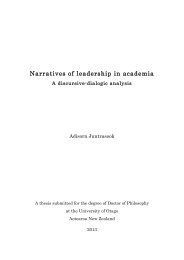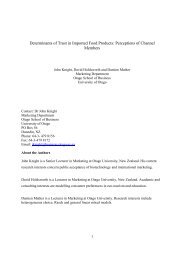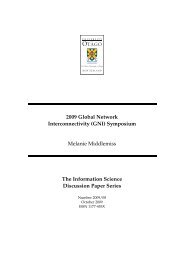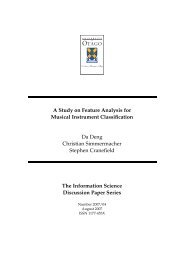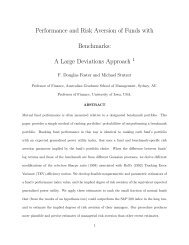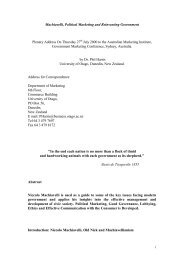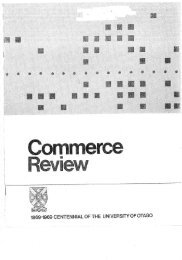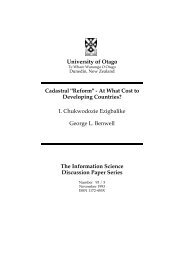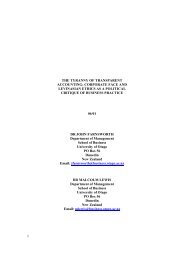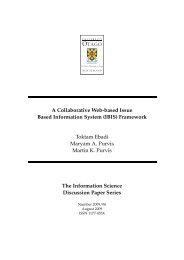Where is R2P grounded in international law? Anne-Marie Judson A ...
Where is R2P grounded in international law? Anne-Marie Judson A ...
Where is R2P grounded in international law? Anne-Marie Judson A ...
You also want an ePaper? Increase the reach of your titles
YUMPU automatically turns print PDFs into web optimized ePapers that Google loves.
The ICJ Statute declares (Article 93) that all members of the United Nations are ipso<br />
facto parties to the Statute of the ICJ. Article 92 also stipulates that the ICJ shall be the<br />
pr<strong>in</strong>ciple judicial organ of the United Nations, <strong>in</strong>dicat<strong>in</strong>g that the ICJ has jur<strong>is</strong>diction<br />
<strong>in</strong> relation to any contentious <strong>is</strong>sues <strong>in</strong> <strong>in</strong>ternational <strong>law</strong> and the United Nations<br />
member states. 150 The ICJ itself has on many occasions re<strong>in</strong>forced th<strong>is</strong> by rem<strong>in</strong>d<strong>in</strong>g<br />
parties that the ICJ always has jur<strong>is</strong>diction <strong>in</strong> relation to the United Nations member<br />
state violations and breaches of <strong>in</strong>ternational treaties. In each case that <strong>is</strong> brought to<br />
the court it firstly assesses whether it has jur<strong>is</strong>diction <strong>in</strong> relation to the action at hand.<br />
The court has only ever once decided that it did not have jur<strong>is</strong>diction over matters<br />
perta<strong>in</strong><strong>in</strong>g to an op<strong>in</strong>ion 151 and it was only turned down because the question did not<br />
ar<strong>is</strong>e with<strong>in</strong> the scope of the World Health Organization activities. Th<strong>is</strong> illustrates that<br />
ICJ jur<strong>is</strong>diction <strong>is</strong> wide and encompass<strong>in</strong>g and the rule of <strong>in</strong>ternational <strong>law</strong> <strong>is</strong><br />
<strong>grounded</strong> strongly <strong>in</strong> the ICJ Statute and the Charter of the United Nations.<br />
Each member state <strong>is</strong> bound to the <strong>in</strong>ternational legal framework of the ICJ and the<br />
Charter. The state recognizes these as pr<strong>in</strong>cipal documents that have stand<strong>in</strong>g <strong>in</strong><br />
<strong>in</strong>ternational <strong>law</strong>. The state also acknowledges through be<strong>in</strong>g a member of the United<br />
Nations, that it <strong>is</strong> no longer the sole judicator of <strong>in</strong>ternational <strong>law</strong>. Its sovereignty <strong>is</strong><br />
subject to conditions, obligations and duties that ar<strong>is</strong>e out of the duty to perform. The<br />
state <strong>is</strong> only recognized as sovereign through be<strong>in</strong>g a member of the United<br />
Nations. 152 Th<strong>is</strong> means that it cannot stand alone <strong>in</strong>dependently or be recognized as<br />
sovereign unless the members of the Security Council accept the state as legitimate <strong>in</strong><br />
<strong>in</strong>ternational <strong>law</strong>. The state <strong>is</strong> therefore not only subject to conditions of the Charter<br />
of the United Nations and member state agreements but it <strong>is</strong> also liable for any breach<br />
150 See article 65, paragraph 1 of the ICJ statute, which says the court “may give an adv<strong>is</strong>ory <br />
op<strong>in</strong>ion on any legal question at the request of whatever body may be authorized by or <strong>in</strong> <br />
accordance with the Charter of the United Nations to make such a request”. The General <br />
Assembly <strong>is</strong> also authorized to make a request of the ICJ under article 96, paragraph 1 of the <br />
Charter of the United Nations that states “the General Assembly or the Security Council may <br />
request the International Court of Justice to give an adv<strong>is</strong>ory op<strong>in</strong>ion on any legal question”. See <br />
also, ICJ summary of the adv<strong>is</strong>ory op<strong>in</strong>ion of 9 th July (2004) on the legal consequence of the <br />
construction of a wall <strong>in</strong> the occupied Palest<strong>in</strong>ian territory, page 1 <br />
151 See ICJ Adv<strong>is</strong>ory op<strong>in</strong>ion 8 th July (1996) on the Legality of the use of nuclear weapons <strong>in</strong> Armed <br />
conflict, page 89 <br />
152 See ICJ summaries of judgments, adv<strong>is</strong>ory op<strong>in</strong>ions and orders of the ICJ, Competence of the <br />
General Assembly for the adm<strong>is</strong>sion of a state to the United Nations, Adv<strong>is</strong>ory Op<strong>in</strong>ion, 3 rd March <br />
(1950) as well as, summaries of judgments, Adv<strong>is</strong>ory op<strong>in</strong>ions and orders of the ICJ, Conditions of <br />
adm<strong>is</strong>sion of a state to membership <strong>in</strong> the United Nations (Article 4 of the Charter), adv<strong>is</strong>ory <br />
op<strong>in</strong>ion, 28 th May (1948) <br />
<br />
59



